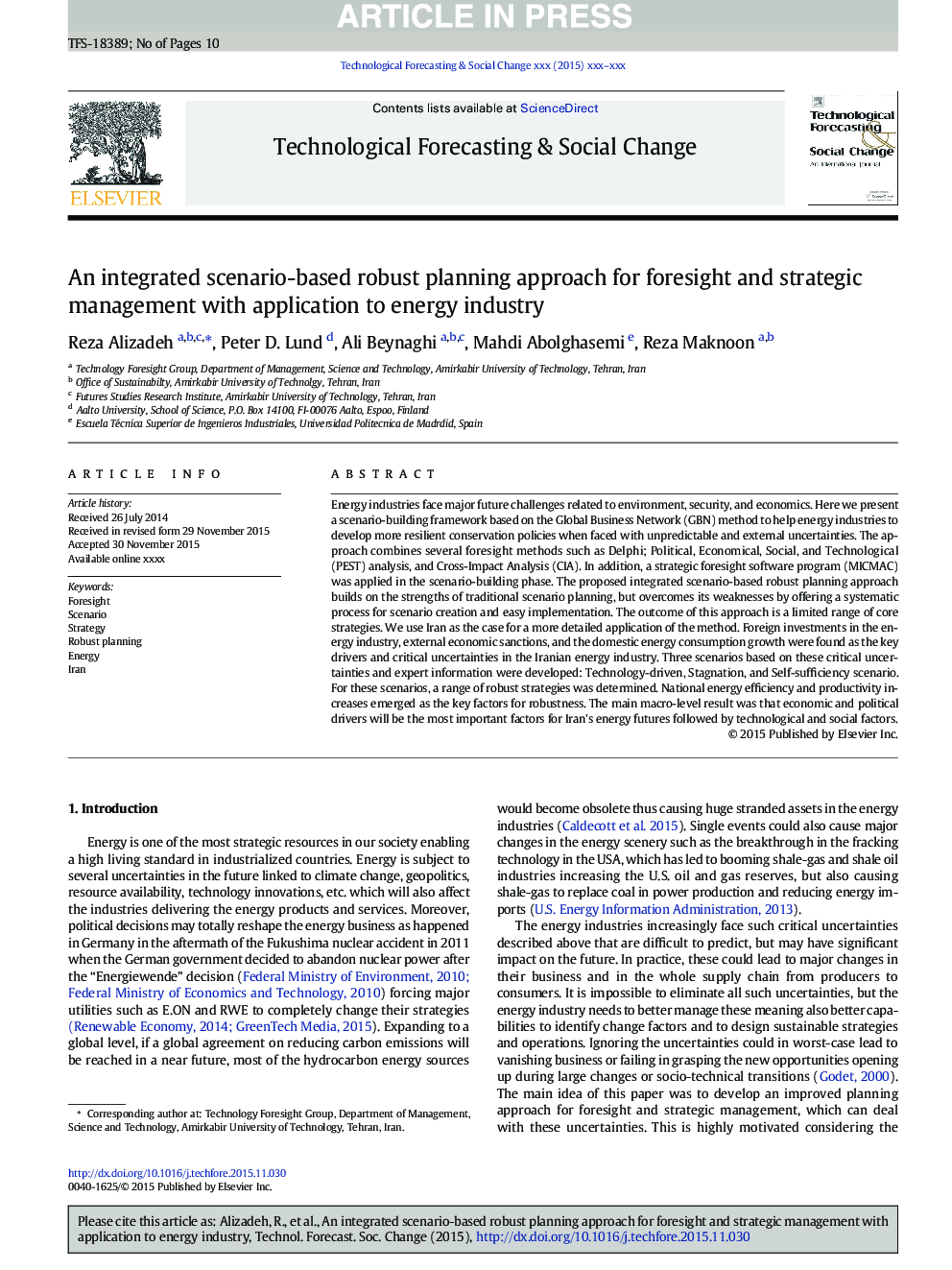| کد مقاله | کد نشریه | سال انتشار | مقاله انگلیسی | نسخه تمام متن |
|---|---|---|---|---|
| 7256106 | 1472396 | 2016 | 10 صفحه PDF | دانلود رایگان |
عنوان انگلیسی مقاله ISI
An integrated scenario-based robust planning approach for foresight and strategic management with application to energy industry
ترجمه فارسی عنوان
یک رویکرد برنامه ریزی قوی مبتنی بر یکپارچه برای پیش بینی و مدیریت استراتژیک با کاربرد در صنعت انرژی
دانلود مقاله + سفارش ترجمه
دانلود مقاله ISI انگلیسی
رایگان برای ایرانیان
کلمات کلیدی
آینده نگری، سناریو، استراتژی، برنامه ریزی دقیق انرژی، ایران،
موضوعات مرتبط
علوم انسانی و اجتماعی
مدیریت، کسب و کار و حسابداری
کسب و کار و مدیریت بین المللی
چکیده انگلیسی
Energy industries face major future challenges related to environment, security, and economics. Here we present a scenario-building framework based on the Global Business Network (GBN) method to help energy industries to develop more resilient conservation policies when faced with unpredictable and external uncertainties. The approach combines several foresight methods such as Delphi; Political, Economical, Social, and Technological (PEST) analysis, and Cross-Impact Analysis (CIA). In addition, a strategic foresight software program (MICMAC) was applied in the scenario-building phase. The proposed integrated scenario-based robust planning approach builds on the strengths of traditional scenario planning, but overcomes its weaknesses by offering a systematic process for scenario creation and easy implementation. The outcome of this approach is a limited range of core strategies. We use Iran as the case for a more detailed application of the method. Foreign investments in the energy industry, external economic sanctions, and the domestic energy consumption growth were found as the key drivers and critical uncertainties in the Iranian energy industry. Three scenarios based on these critical uncertainties and expert information were developed: Technology-driven, Stagnation, and Self-sufficiency scenario. For these scenarios, a range of robust strategies was determined. National energy efficiency and productivity increases emerged as the key factors for robustness. The main macro-level result was that economic and political drivers will be the most important factors for Iran's energy futures followed by technological and social factors.
ناشر
Database: Elsevier - ScienceDirect (ساینس دایرکت)
Journal: Technological Forecasting and Social Change - Volume 104, March 2016, Pages 162-171
Journal: Technological Forecasting and Social Change - Volume 104, March 2016, Pages 162-171
نویسندگان
Reza Alizadeh, Peter D. Lund, Ali Beynaghi, Mahdi Abolghasemi, Reza Maknoon,
